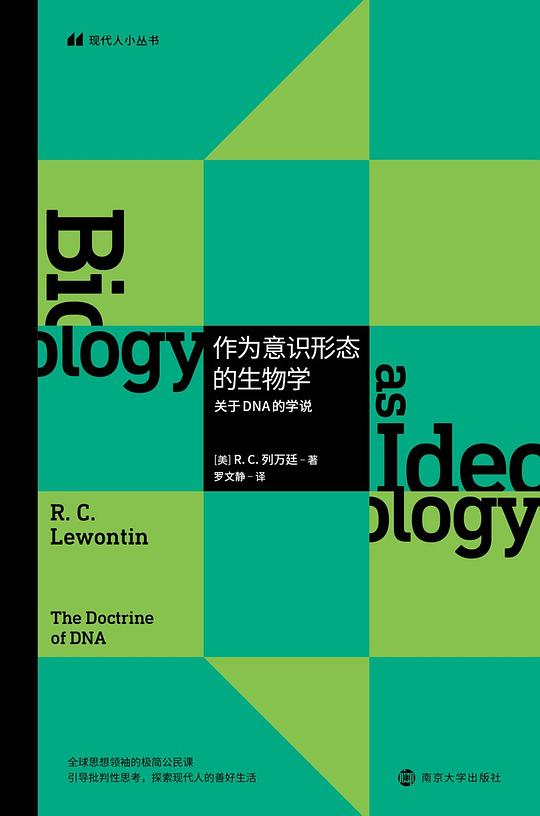
《作为意识形态的生物学》"Biology as an ideology: My take on the English version"
书名:作为意识形态的生物学
1
0

大圣归来 2023-06-16 14:51:22
Lysenkoism refers to the pseudoscientific agricultural practices and ideas promoted by Trofim Lysenko, a Soviet biologist, during the mid-20th century. Lysenko rejected established principles of genetics and embraced the theory of the inheritance of acquired characteristics. This theory suggested that an organism could pass on characteristics acquired during its lifetime to its offspring. Lysenko claimed that these acquired characteristics could be induced through environmental factors such as temperature or other external influences.
Under the rule of Joseph Stalin, Lysenkos ideas gained political favor, as they aligned with the ideology of Soviet socialism and the desire for rapid agricultural advancements. His theories were heavily promoted, and dissenting views from the established genetic principles of Mendelian inheritance were suppressed. This led to disastrous consequences for Soviet agriculture, as Lysenkos practices did not align with sound scientific principles.
The consequences of Lysenkoism included the rejection of productive farming techniques, the persecution of scientists who opposed Lysenkos ideas, and the stagnation of Soviet biology. It took several decades for Soviet biology to recover from the damage caused by Lysenkoism.
Lysenkoism serves as a cautionary tale in the history of science, illustrating the dangers of pseudoscience, political interference, and the suppression of scientific dissent.
相关推荐
萤火谷的梦想家
艾莉森•麦吉出生于1960年,是美国《纽约时报》畅销书作家,同时也是大都会州立大学创意写作课的教授。她的作品被翻译成20多种语言并出版,也曾被提名普利策奖,并获得苏斯博士奖金奖、克里斯托弗图书奖、美国 [美]艾莉森•麦吉/[美]克里斯托弗•丹尼斯/绘 2023-03-27 16:50:25鬼马女神捕1·绝密卧底(上)
腹黑凤凰vs毒舌鸡妖——蓝翎:“小姬,跟我去人界吧!”姬十四:“干吗?让人宰了我做小鸡炖蘑菇吗?”蓝翎:“不啊,让妖怪宰了你做小鸡炖蘑菇更气派。”凤凰蓝翎和鸡妖姬十四生活在无忧无虑的灵界。他们的故乡叫 郝天晓 2023-04-17 00:22:47© 2023-2025 百科书库. All Rights Reserved.












发表评价